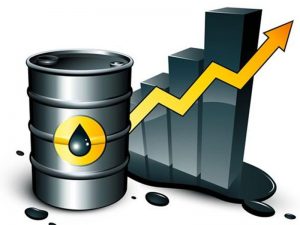By Charles Abuede
- FSDH, United Capital analysts say 2021 Eurobond issuance could spur reserves accretion
Despite a 36 per cent increase in crude oil price from January to May 2021, Nigeria’s external reserves have remained around the $34 billion band, below pre-COVID-19 levels. For the Nigerian government, actual revenue performance in the first quarter of 2021 is expected to receive a boost from the recovery in oil prices. So far, oil prices have averaged $68 per barrel, reaching $72 per barrel at the start of June and above the 2021 budget benchmark of $40 per barrel. This implies an inflow into the excess crude account.

Although the GDP has recorded two consecutive expansions in the final three months in 2020 and the first quarter of 2021, external reserves and exchange rate remain under pressure. Higher crude oil price in the first five months of 2021 was not enough to eliminate pressure on Nigeria’s external reserves and exchange rate. Year to date, Nigeria’s gross external reserves have lost 3.9 percent of its value from $35.65 billion in January to $34.3 billion at the start of June 2021.
A glimmer of hope was witnessed in the reserves after it surged to $36.1 billion in January following the reopening of the national borders, continuous positive rally in the price of Brent crude in the global market and several efforts by the apex bank to defend the local currency which has seen immense pressure from increased demand for the greenback over the past months. The rebound in external reserves to $35.2 billion from $34.9 billion at the start of March 2021 reflects the impact of the rally in crude oil prices in recent months, with Brent crude gaining 28.5 percent on a year to date basis. As analysts have highlighted, the rally in the crude oil market had not filtered into the nation’s external reserves as the market is a futures market. Thus, the improved dollar inflows are just beginning to trickle into the reserves.
Nevertheless, economic experts have projected that the reserves, which currently hovers around the $34 billion mark, are expected to slow down in the short term due to lower than anticipated foreign investment and oil inflows. Meanwhile, the planned issuance of Eurobond by the government is expected, according to analysts, to provide some relief in the market and boost external reserves in the short term.
Consequently, analysts at United Capital Research have asserted that the attempt of the federal government to borrow from the international debt market and sustained positive momentum of oil prices in the market could further strengthen Nigeria’s gross reserves in the third quarter of 2021. Also, it is maintained by analysts that the apex bank is likely to stay reluctant in its significant forex market interventions pending the period the external reserves cross the $40 billion mark.
“Going forward, we expect the impact of higher crude prices to continue over the coming months. In addition, we expect this to be further aided by the federal government’s plan to issue Eurobonds as part of its debt programne for 2021. We recall that as part of the 2021 budget, the FG announced plans to borrow N2.1 trillion (estimated at $5.5 billion using the official exchange rate) from the international debt market.
“While we do not anticipate Eurobond issuance of this magnitude, we expect the FG to attempt raising a similar $3.3 billion it planned to raise last year while funding the rest via multilateral sources. In our opinion, it could further strengthen gross reserves in the third quarter of 2021.
“Lastly, we think this bodes well for the FX market, thus improving FX liquidity conditions. That said, we believe the CBN will remain reluctant in resuming significant interventions in the FX market until the external reserves cross the $40 billion mark,” United Capital analysts concluded. Furthermore, a macroeconomic scenario by economic analysts at FSDH Capital Research contained in a research note made available to Business A.M., forecast that in 2021:
“Nigeria’s external reserves will average $34.0 billion as the exchange rate is quoted at N430 to the greenback and positive growth in the national output by 1.3 per cent as the economy recovers moderately and embraces the new normal while the price of crude oil averaged $45 per barrel. That said, as the economy opens up and the government fully implements interventions to stimulate the economy, the external reserves will climb to $38 billion on a best-case scenario if the exchange rate stays at N380 to the dollar, oil price rises significantly above $53 per barrel and the demand for Nigerian crude improves as economies recover while Nigeria produces 1.9 million barrels per day.
“On the worst-case scenario for the reserves, it will average at $28 billion if the gross domestic product growth contracts to -2 per cent year on year with the oil price plunging below $30 per barrel as a result of rapidly increasing death toll from covid-19 and weak implementation of business support initiatives,” they concluded.
In conclusion, as economic activities resume across several activity sectors, there is an anticipation of improved economic recovery in subsequent quarters. However, the need to continue attracting capital inflows to boost foreign reserves, support the budget and ensure exchange rate stability would motivate the MPC to keep interest rates high in subsequent meetings.








